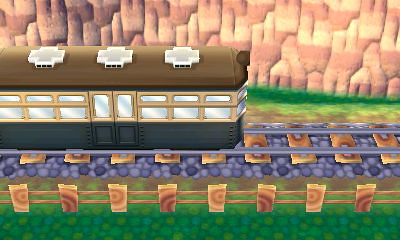First, let me be absolutely clear. I support the stated aims of those people participating in the Twitter boycott today, and I do not think my own speech contradicts them in any way. More than one person participating has said, in as many words, that this is about people reacting in a way that works for them. The only implication that those speaking today are somehow crossing a picket line has so far come from broader critics of the boycott, and not from those taking part. It’s a straw man, as is anything that points to this post as saying that the boycott is pointless or purposeless or useless. Again, to be clear: I do not believe that.
The Twitter silence has the potential to be an excellent embodiment of the freedom-of-speech dichotomy that turns up in a lot of arguments about hate speech. When you fail to enforce punishments for those who abuse, threaten and harass others, you aren’t protecting free speech – you’re permitting their victims to be silenced. Those people going quiet on Twitter for a single day are drawing attention to that fact – and that’s worth doing. I hope that, as Helen Lewis says, this moment of silence leads to a larger conversation.
But silence isn’t my choice. I’ve not been silent for any cause; I’ve always believed my voice has far more power than the lack of it, even for a day. I’m viscerally aware, too, of the power dynamics in this form of protest: you can only effectively participate in a silent boycott if you have a platform large enough that people will notice your absence.
It may be true that widely-followed, well-known people get the most abuse; it is in my experience also true that this problem has a very, very long tail, of people with a few dozen followers getting a little abuse, one troll, perhaps a violent-sounding stalker or two. It’s also true that trans people, people of colour, and disabled people – among other groups – tend to get an astonishing level of abuse as well; I have not been silent in support of those people either, in part because the people I’ve seen react against this type of hate speech have not been in a position where silence was a sensible protest.
Those people who don’t have a megaphone to put down can’t effectively use silence as a weapon, and it’s unlikely that this will be an effective path for them to get the recourse available to Hadley Freeman or Caroline Criado-Perez. Twitter and – in the case of actionable posts – the police are far too slow to respond to those people famous enough or articulate enough to demand it. But to those people who are not, they fail to respond at all. I don’t see how my silence today would change that – though I can understand why those participating hope that their critical mass will help to change policies and approaches both at Twitter and within law enforcement. What I can do is use this opportunity to highlight it in my own way, and to call for better approaches from Twitter and for the police to enforce laws that already exist.
Silence from me on a Sunday doesn’t mean much in any case – normally, these days, it means I’m off in Marrickville with a bunch of my friends playing tabletop games, forgetting that the internet exists and escaping for a while. It is pointless to protest by refusing to participate in something you don’t normally participate in anyway. And I have had an uneasy relationship with silence since I started writing under my own name online – a consistent awareness of the potential consequences of speaking, which ends up becoming a sort of self-censorship, a partial silence. Something I wrote two years ago, in reaction to Helen Lewis’s reporting on abuse, remains true (though I would use the word ‘people’ now, because it’s not just women dealing with this shit):
I’ve seen people argue that women should be stronger, should just suck it up and deal with it, as though silence about abuse is not a form of partial silence. I’ve seen people say women aren’t being silenced, because of all these women who are not silent, as though all women speak about the same things and measure risk and reward the same way, and as though there’s no gradient between silent and outspoken. I’ve seen suggestions that women should only write on moderated sites – presumably sites they don’t moderate themselves – as though restricting the venues of our speech doesn’t amount to silencing. And I’ve seen people say pseudonymous environments are bad for women because of harassment, when some of us find them the only places we can speak without worry.
All of those arguments are bollocks.
Now, as then, the best thing I feel I personally can do is to speak out – to put myself, directly or otherwise, in the firing line. To do so knowing that not being silent is still one of the most daring, distressing, dangerous things some people can do online, and that people with far fewer resources and more to lose than I are speaking up, every day, and refusing to let credible threats and floods of violent abuse prevent them.
I remain one of the lucky ones, because I only have to deal with pictures of dismembered fetuses and outright threats of rape every few months or so, rather than every day. Gender-based slurs and harassment should not be an occupational hazard for female journalists, any more than they should be a condition of open internet use for anyone who dares to differ from the English-speaking world’s white straight cis currently-not-disabled male default. Some people can use silence as a weapon against this state of affairs. I can use speech.

